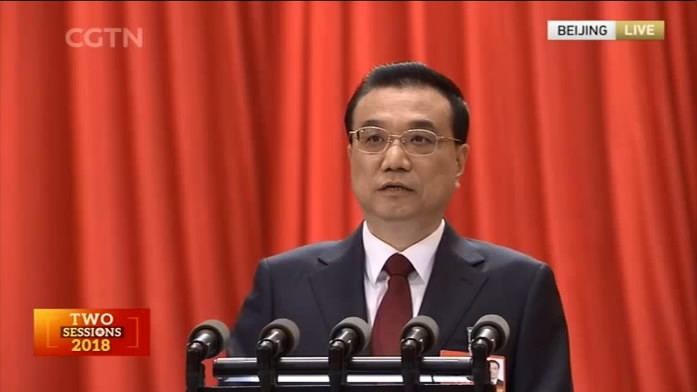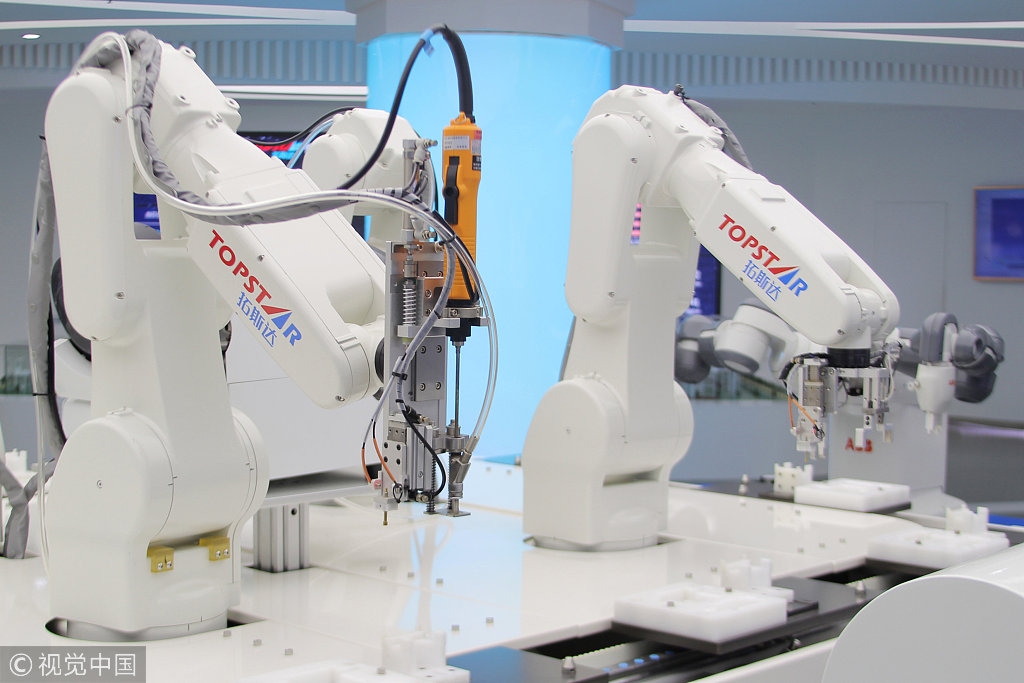
Opinion
14:02, 12-Mar-2019
Global technology competition won't necessarily be a zero-sum game
Updated
22:02, 13-Mar-2019
Li Zheng

Editor's note: Li Zheng is an associate research fellow at the China Institutes of Contemporary International Relations, Institute of American Studies and the director of the American Security Center, Institute of American Studies. The article reflects the author's opinion, and not necessarily the views of CGTN.
The government work report is an important window into the changes in China's economic and social policies. This is why during the Two Sessions of China each year, hundreds of international media reporters gather in Beijing, hoping to obtain some key information from the content of the report, trying to get a grip on China's future policy.
This is the first government work report after the Sino-U.S. trade war, and at the time of the report, the United States is trying to unite Western countries in blocking China's access to Western technology, and even seeking to exclude China from the global technology supply chain. Both domestic and foreign observers are looking at how China will tackle the heated global technology competition.
In this government work report, Chinese Premier Li Keqiang gave a clear answer. China is gradually changing the main mode of technological development and hopes to participate in global technology competition with its comparative advantage.

Chinese Premier Li Keqiang delivers government work report to lawmakers. /CGTN Photo
Chinese Premier Li Keqiang delivers government work report to lawmakers. /CGTN Photo
This new model will rely more on China's independent research and development than on the introduction of mature foreign technology. Premier Li emphasized that the establishment of a new innovation ecology should be based on basic research, original innovation, and healthy scientific atmosphere. This new ecology highlights the role of researchers, giving researchers more freedom and resources in order to encourage solid scientific research.
China has the largest team of scientific and technological talents in the world. As long as the scientific research ecology is improved, China's innovation capability will be able to reach a new level and achieve breakthroughs in key areas.
On the other hand, China has a more positive attitude towards technological globalization. China not only benefits from technological globalization but also hopes to bring public goods to countries around the world through its scientific advancement.
China proposes to improve the standards of Chinese products and services to the international advanced level and improve the quality of products and services. As China taking a more active position to technology globalization, China's technological progress will also contribute to the progress of human civilization.
This means that if Western countries isolate China in terms of technical cooperation in the name of security, China is still able to fill these technological deficits and hopefully become a global technology leader in some areas.
More importantly, the report clarifies China's strategy in participating in global technology competition will be through relying on its comparative advantage rather than non-market and political approach.

Industrial robots are pictured at a factory of Topstar Technology in Dongguan, Guangdong province, China March 1, 2019. /VCG Photo
Industrial robots are pictured at a factory of Topstar Technology in Dongguan, Guangdong province, China March 1, 2019. /VCG Photo
Comparative advantage is key for a country to choose its development model and industrial focus. Premier Li has identified the enterprise-based integrated innovation mechanism of production, education and research as the core of China's innovation system.
The theory of comparative advantage does not emphasize government intervention and protection, but the government's stimulation and guidance. The government is mobilizing the whole team like a football coach does, inspiring the strengths of each player. In the mode of political intervention, the government is a referee who is obviously biased towards one side, trying to undermine the balance and justice of the game.
Western countries, such as the U.S., have defined this global technological competition as a struggle for future and a zero-sum game and decided to be the "referee". It employs political intervention to protect their own technology enterprises and boycott other enterprises.
In the era of globalization, countries should seek common development by exchanging their comparative advantages. China believes that market competition is the best competition. China's main strength lies in talent, market and vibrant enterprises, not a big government.
(If you want to contribute and have specific expertise, please contact us at opinions@cgtn.com)

SITEMAP
Copyright © 2018 CGTN. Beijing ICP prepared NO.16065310-3
Copyright © 2018 CGTN. Beijing ICP prepared NO.16065310-3